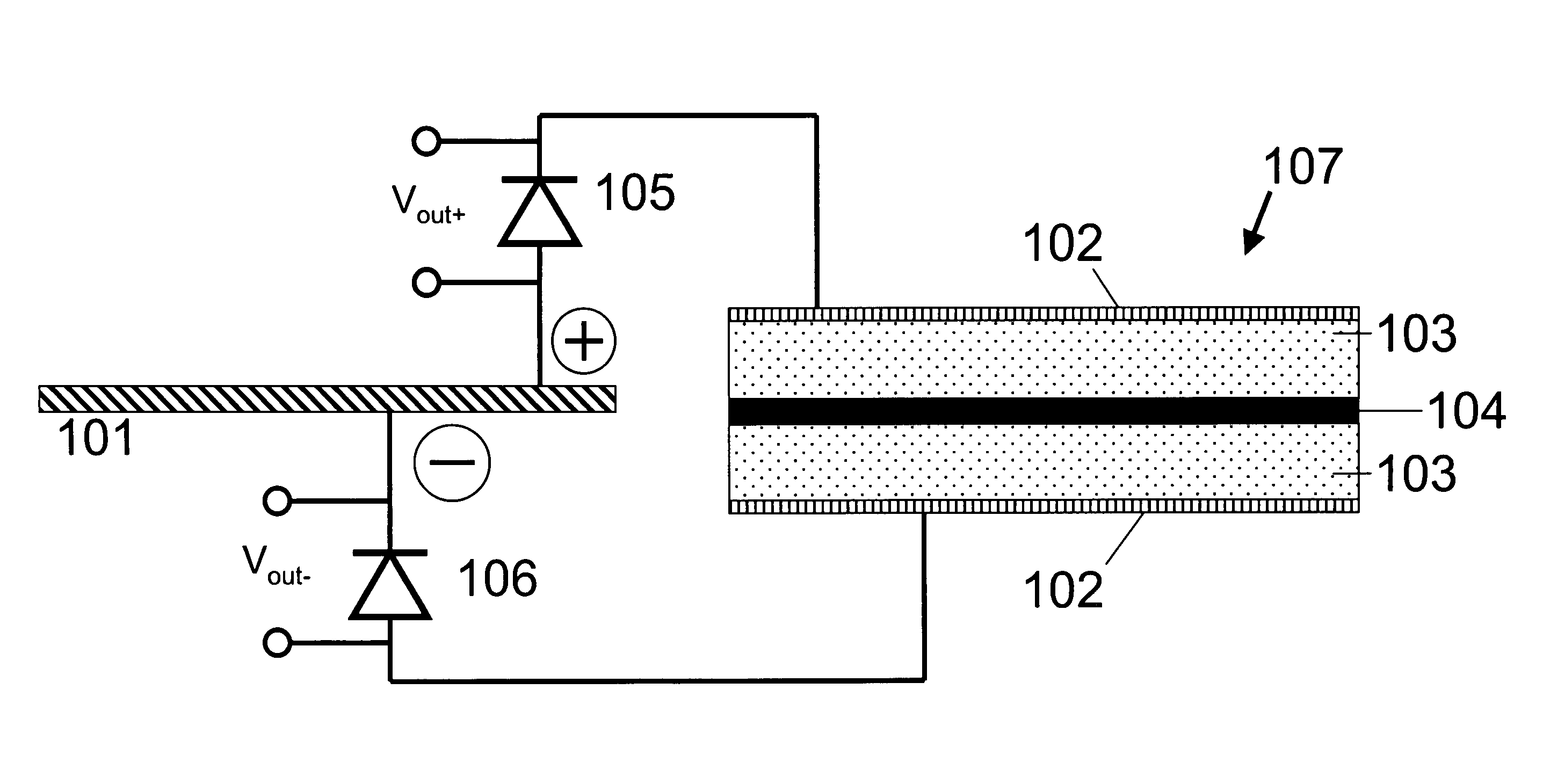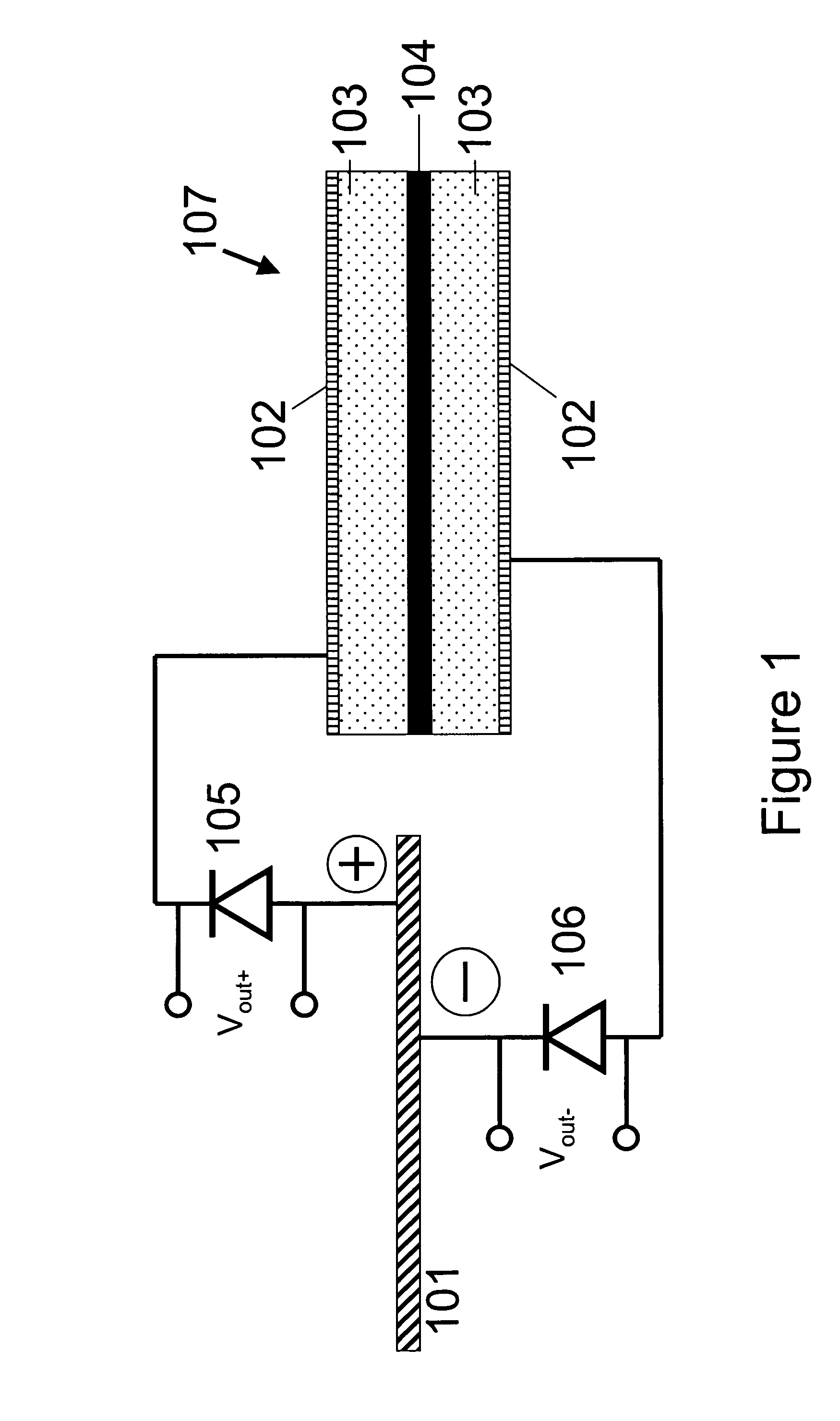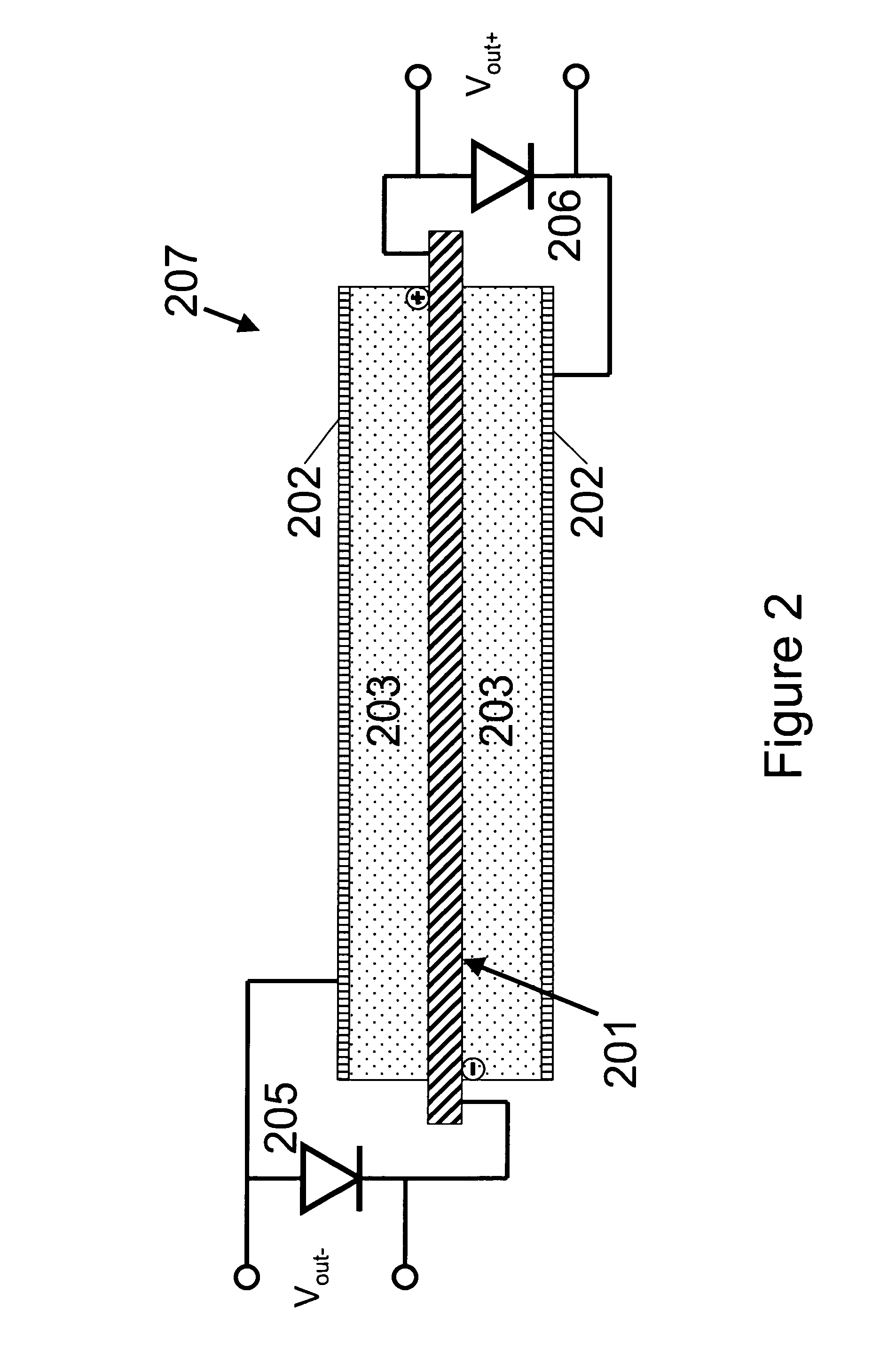Piezoelectric ultracapacitor
a technology of ultracapacitors and elastomers, applied in capacitor collector combinations, capacitor dielectric layers, generators/motors, etc., can solve the problems of dielectric elastomers operated in generator mode, however, not themselves creating energy, and achieving the effect of efficiently utilizing energy in physical motion
- Summary
- Abstract
- Description
- Claims
- Application Information
AI Technical Summary
Benefits of technology
Problems solved by technology
Method used
Image
Examples
Embodiment Construction
[0025]Referring to FIG. 1, piezoelectric element 101 is coupled to ultracapacitor 107 through diodes 105 and 106. Piezoelectric element 101 can be formed of one or more portions of any suitable piezoelectric material, such as polyvinylidene difluoride (known as “PVDF”) or lead zirconate titanate (often referred to as “PZT”). The invention is not limited to the use of these materials, though it is believed that the flexible nature of these two piezoelectric materials provides some protection from cracking or other damage during use. Flexible piezoelectric materials are therefore preferred.
[0026]Moreover, experiments have shown that the power generation capabilities is not greatly enhanced by the use of PZT (which is inherently capable of creating higher voltages than PVDF); PVDF is therefore preferred due to its lower cost. Such materials are known and commercially available from many different sources. PVDF, for example, is available commercially under the trade names KYNAR® and KYN...
PUM
 Login to View More
Login to View More Abstract
Description
Claims
Application Information
 Login to View More
Login to View More - R&D
- Intellectual Property
- Life Sciences
- Materials
- Tech Scout
- Unparalleled Data Quality
- Higher Quality Content
- 60% Fewer Hallucinations
Browse by: Latest US Patents, China's latest patents, Technical Efficacy Thesaurus, Application Domain, Technology Topic, Popular Technical Reports.
© 2025 PatSnap. All rights reserved.Legal|Privacy policy|Modern Slavery Act Transparency Statement|Sitemap|About US| Contact US: help@patsnap.com



